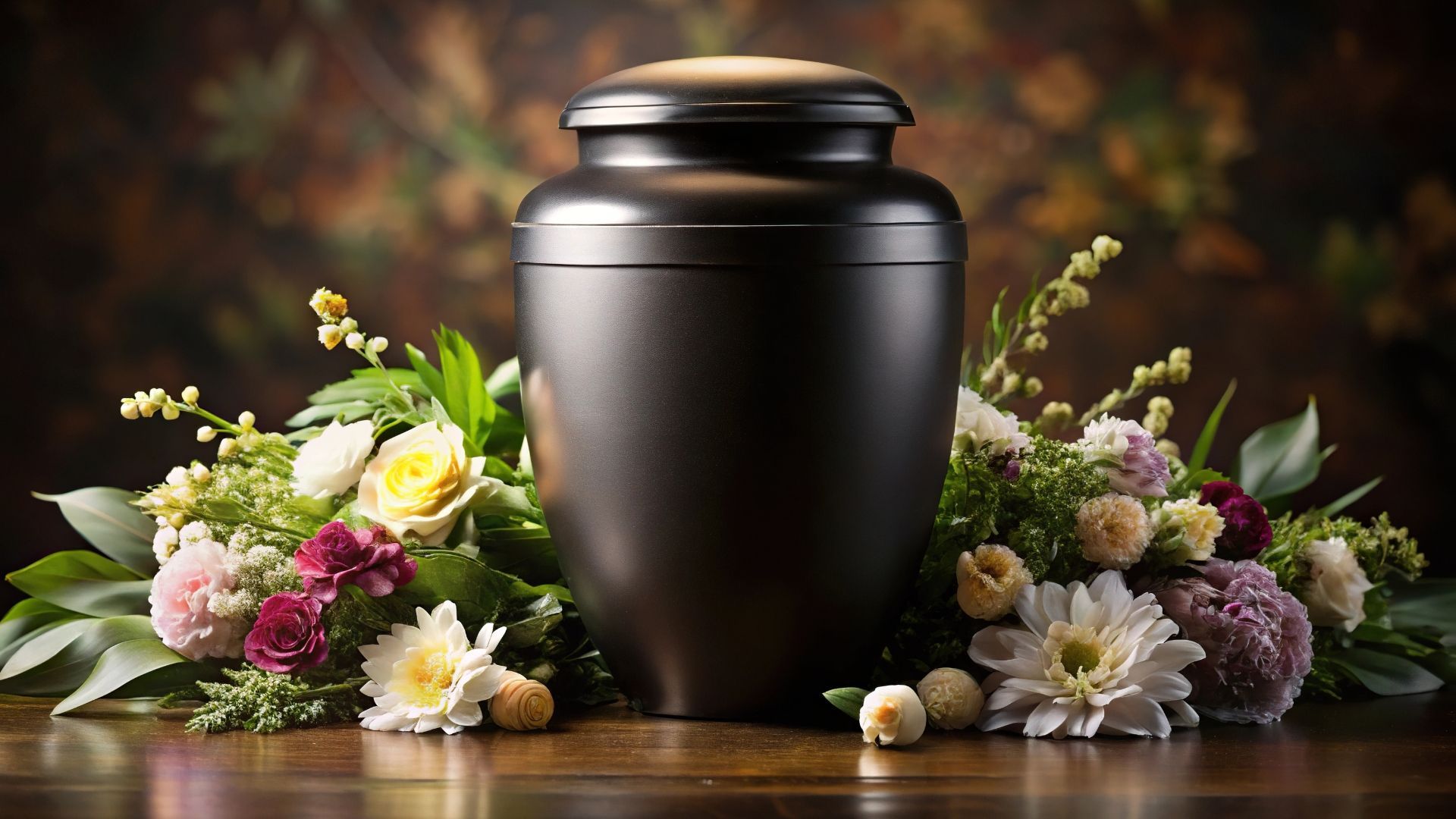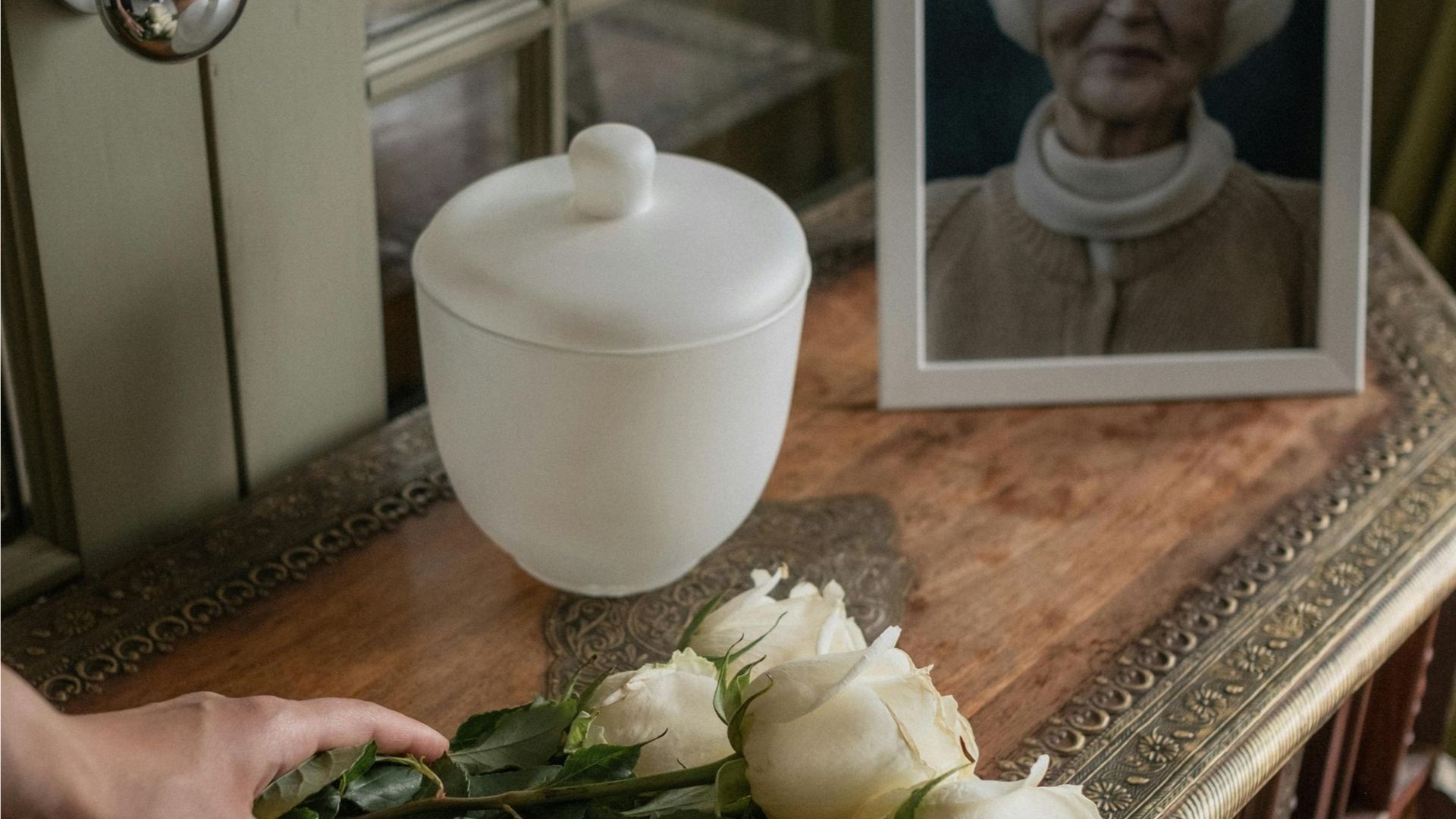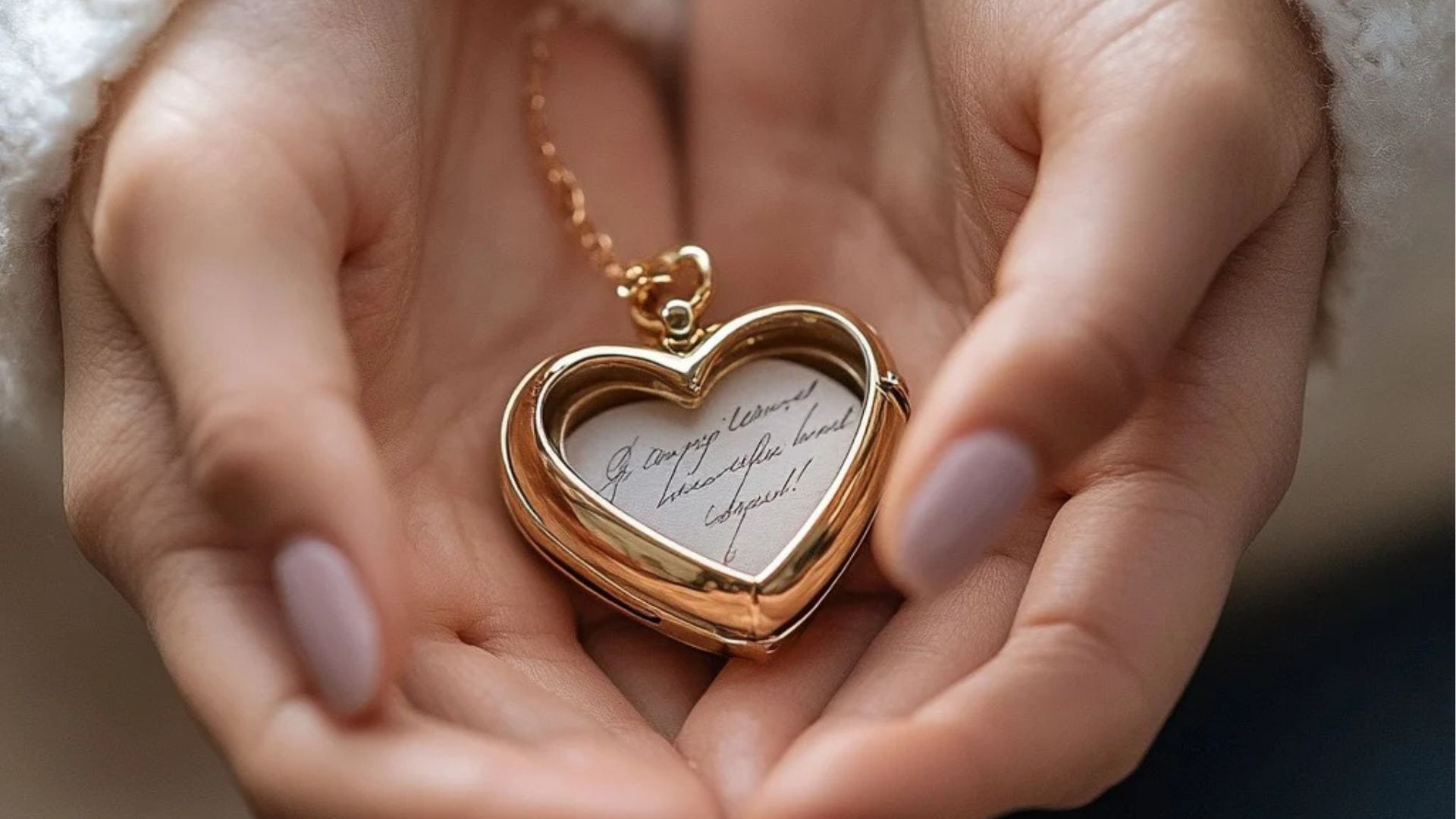The meanings behind funeral flowers
Do flowers seen at funerals have special meanings? Learn about this fascinating topic in our guide.
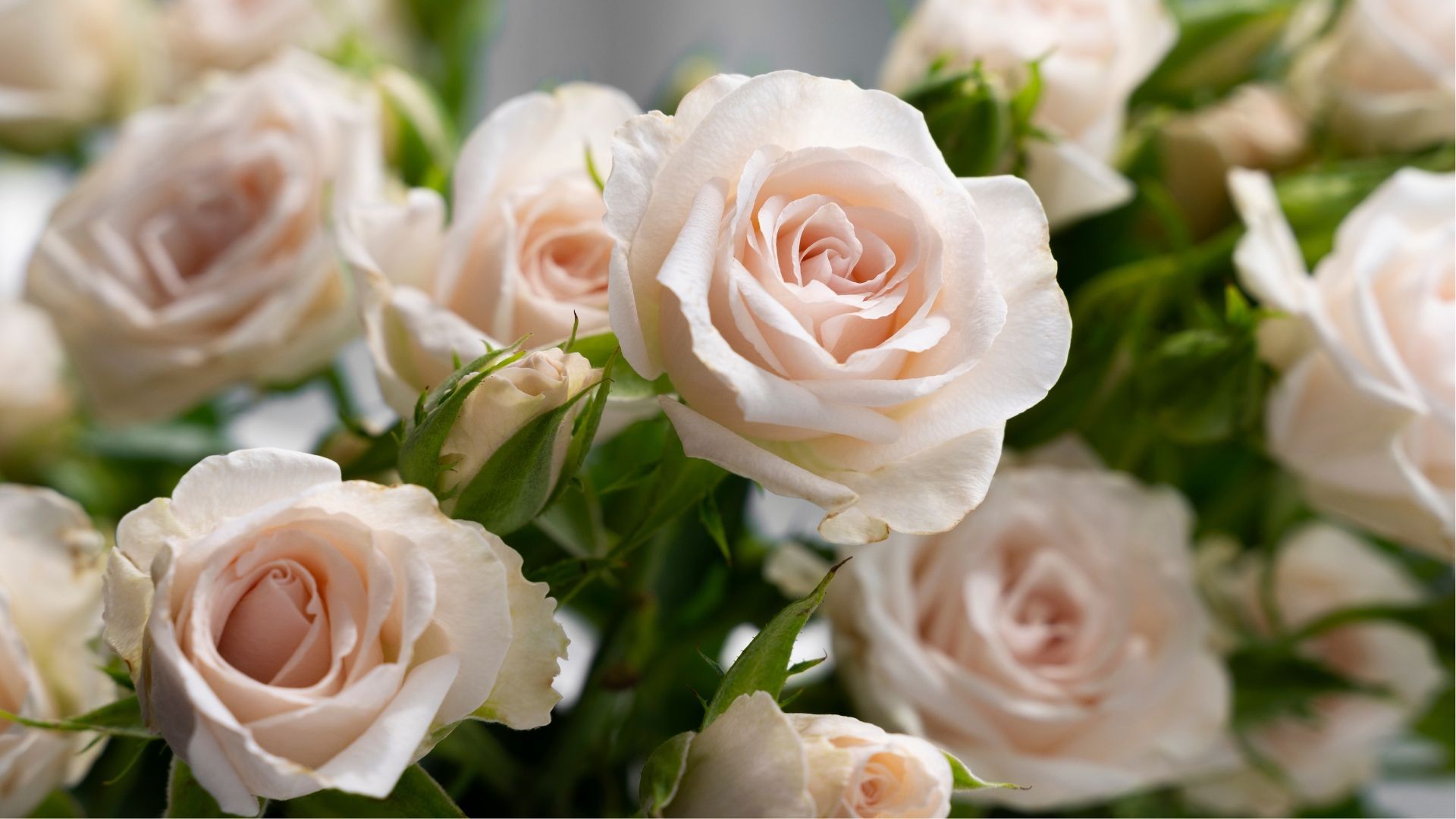
For many people, flowers are an essential part of a funeral. But as with many things connected with funerals, it's not always obvious which flowers to choose.
The run-up to a funeral is usually a difficult time. Whether you're grieving or not, you may feel unsure about what to do and how to act.
This feeling can sometimes be amplified by talk of rules and traditions. Some cultures, groups and faiths have strict practices for funerals. And when you're buying flowers for a funeral, you may worry about the "meaning" of different flowers.
In the UK, the idea that flowers represent ideas like love, courage or hope stems from the Victorian age. They created a whole language of flowers (floriology) with its own
dictionary.
These days, few people know the meanings of different flowers. This means you're highly unlikely to choose the "wrong" flower and upset someone at the funeral.
Thinking about the meaning behind funeral flowers can be a way of making your gift more personal. Alternatively, it can just be an interesting topic to think about. So, what do the flowers often seen at funerals "mean"?
Lilies
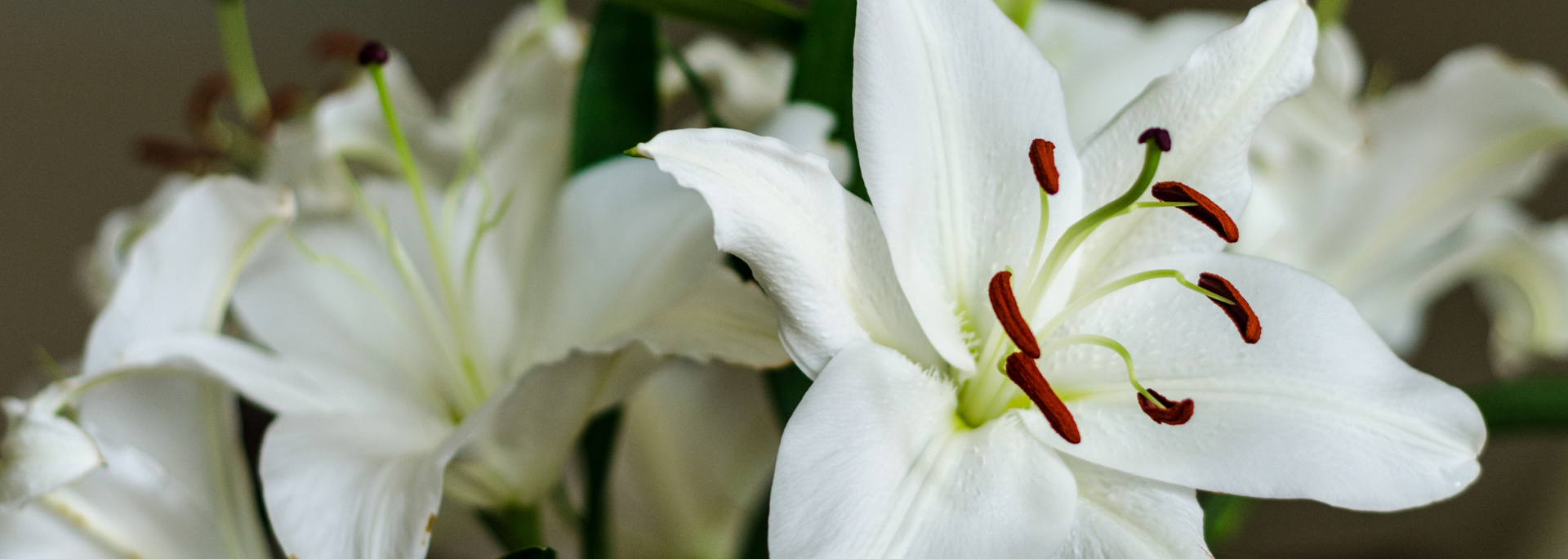
Lilies, especially white lilies, are a common sight at funerals. They're often said to represent purity, innocence, sympathy and peace. These qualities can reflect the personality of the person who died or represent hopes for the future.
Roses

Truth be told, we could write an article on roses alone. That's because their different colours represent an array of different things.
At funerals, the most commonly seen roses are white. Like white lilies, they represent peace and innocence.
Some people, however, choose red roses to symbolise romantic love and passion or yellow roses to mourn a strong platonic relationship. Black roses are sometimes also associated with death.
Carnations
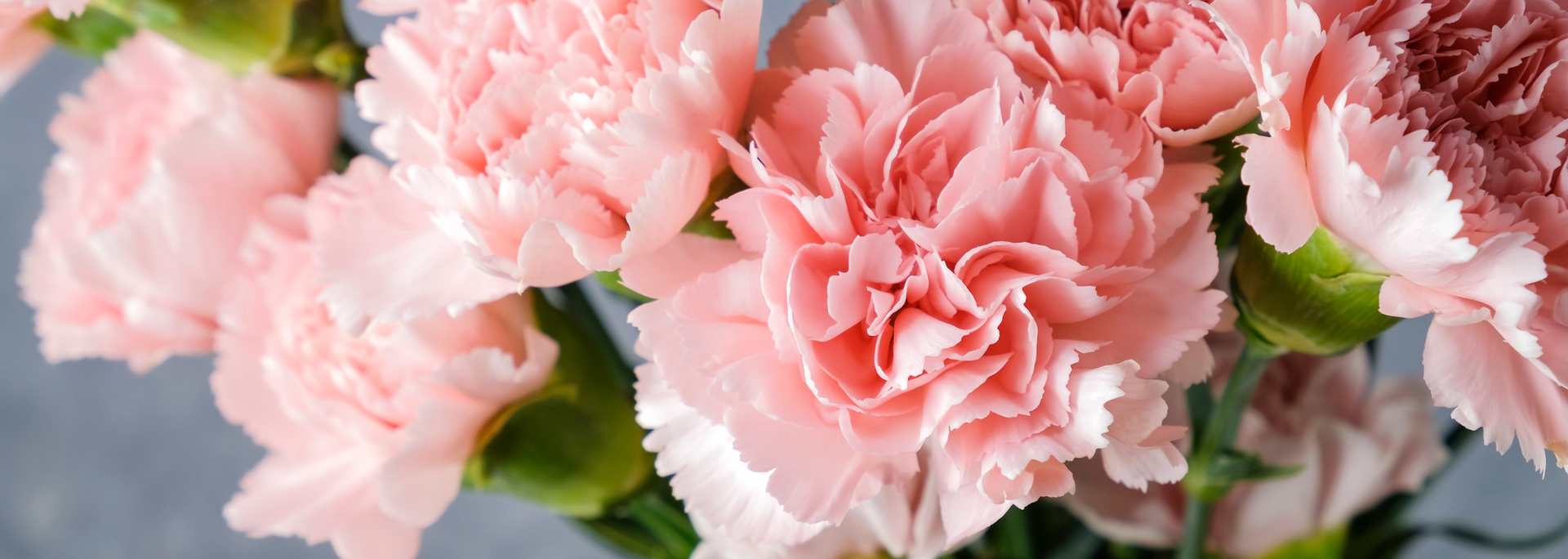
A dark red carnation can be a symbol of deep affection, while a pink carnation can communicate a mother's everlasting love. As with roses and lilies, white is a popular choice at funerals.
Carnations are often used at funerals and in sympathy bouquets because they can last up to a few weeks in water.
Chrysanthemums
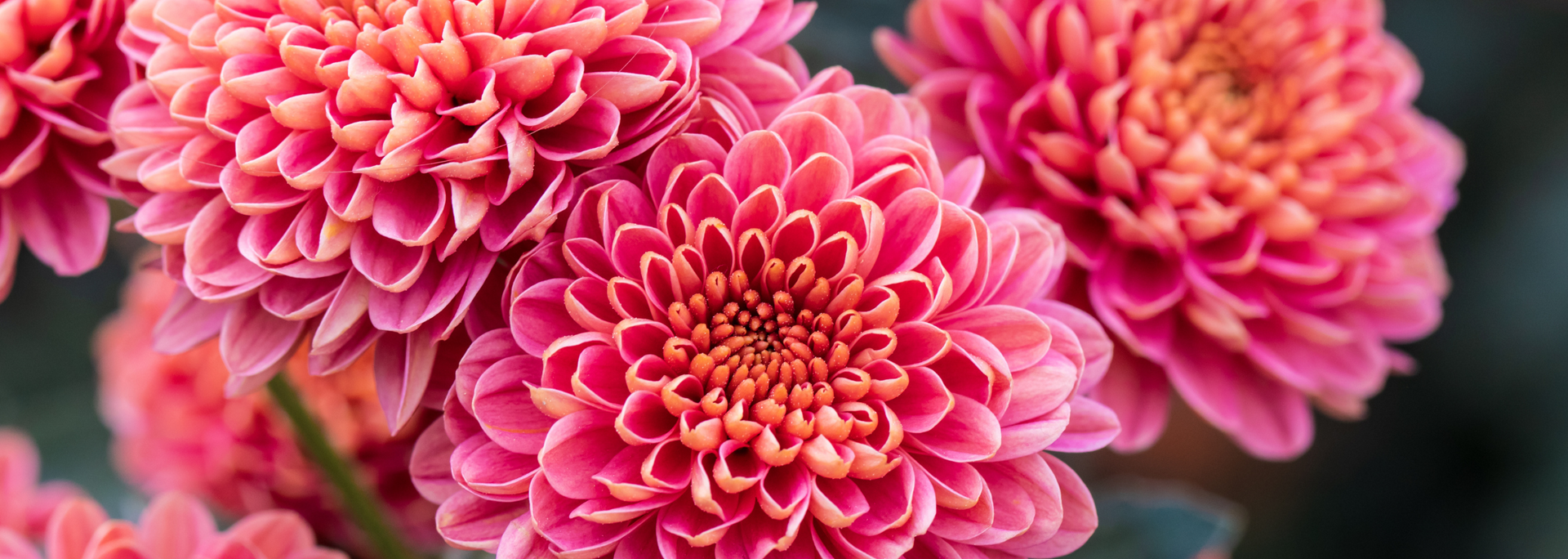
In some parts of the world, chrysanthemums exclusively represent grief. In the UK, however, they sometimes stand for truth, too. Either way, they're often associated with mourning and used as part of funeral floral arrangements.
Gerberas

These daisy-like flowers come in many different shades. They're often thought to symbolise loyal love and innocence.
Gladioli
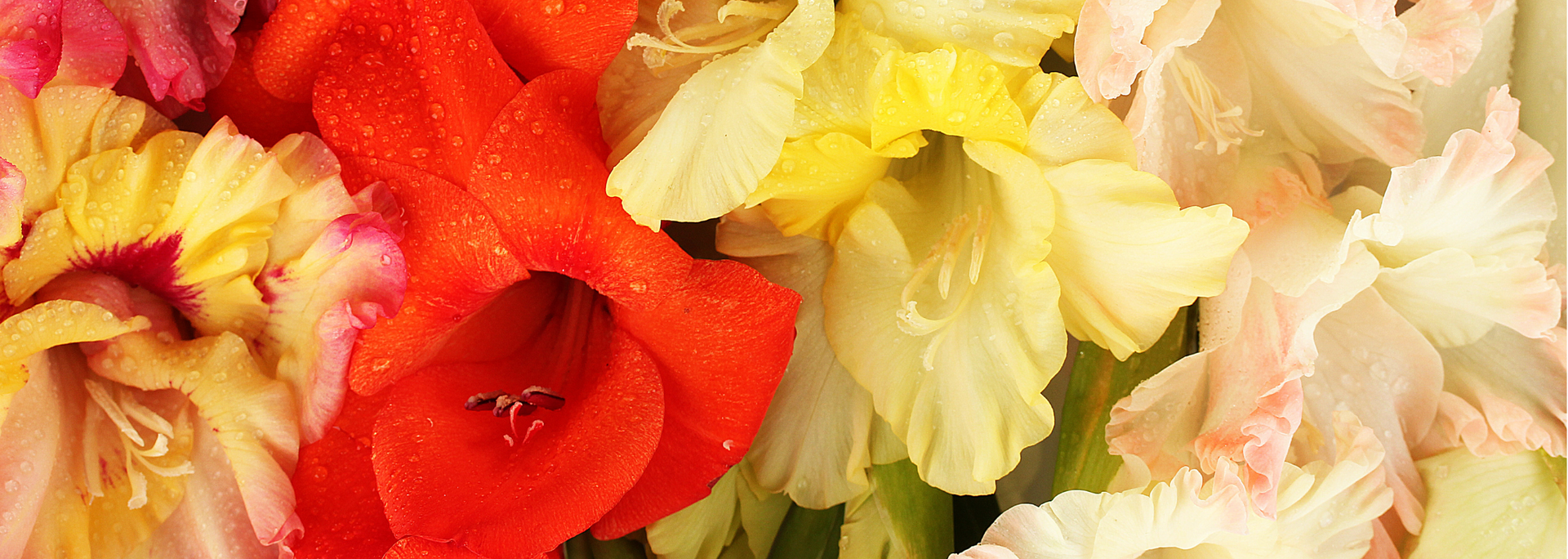
Gladioli come in white, pink, red, purple, yellow, orange and more. Their tall flower stems make them literally stand out in floral arrangements. They are thought to represent strength of character and are often present at men's funerals.
Do I need to think about the meanings of funeral flowers?
At Treasured Moments, we believe that every grief journey is unique – so why would the flowers you choose be any different?
Flowers are a way to express sympathy and show that you're thinking of somebody at a difficult time. They can also be a way of reflecting the personality or interests of the person who died.
When choosing flowers, you can buy them just because you think they're beautiful. You can buy them because they have a personal significance for you and the person who died. Perhaps they had a favourite flower, shared a name with a flower or even shared a quality with a flower.
You might also want to buy flowers not often associated with funerals. Tulips or daffodils, for instance, could help put the emphasis on celebrating the person's life rather than mourning it. Spring flowers can also represent a hopeful looking forward to the future.
You don't even have to buy cut flowers. A potted plant such as a hydrangea or small tree can be given to the family to plant after the funeral.
Who can send funeral flowers?
Unless asked otherwise, anyone can send flowers to a funeral. Usually, however, the flower arrangements around the coffin will be organised by the family and the funeral director.
If you want your flowers to be present at the service, you should send them directly to the funeral home. If, however, you intend them as a personal gift, you should send them directly to the family.
Sometimes, a family will ask you to donate to charity rather than send flowers. This will usually be a charity that was important to the person who died. This might be expressed in the funeral announcement as "family flowers only" or "in lieu of flowers".
Your best bet is to check the funeral announcement or invitation to make sure your gift of flowers will be welcomed.
Bear in mind, too, that funeral flowers are uncommon or unwelcome in some cultures and faiths. In Islam, for instance, it's not considered appropriate to have flowers at the funeral. However, it's usually OK to send flowers to a Muslim family after the funeral as a condolence gift.
What should I write on funeral or sympathy flowers?
Many people find it difficult to express feelings of sympathy after a person has died. Sometimes, this is because people want to stand out by personalising their message.
There's nothing wrong with this, of course. But often simple words do the job just fine. For this reason, you might consider using a phrase like "With deepest sympathy", "Thinking of you" or "Sorry for your loss".
What's the difference between funeral flowers and sympathy flowers?
Funeral flowers are the sprays, wreaths and displays that are present at a funeral. They're typically placed on or around the coffin and around the funeral venue.
Sympathy flowers, however, are gifts sent to the family of the person who died. They can be bouquets or potted plants.
What happens to flowers after a funeral?
After a funeral, flowers are usually left at the graveside or in the crematorium's memorial garden. Sometimes, flowers can be taken home. This, however, is up to the family.
If you do hold onto the flowers, you might consider pressing the petals to create a simple yet long-lasting memorial keepsake.
Here at Treasured Moments, we specialise in
memorial website design. Our team crafts beautiful online tributes by hand – each tailored to the person who has died and their family. Why not take a look at our
sample pages to see what we can do?
*Treasured Moments tribute pages are designed to remain online in perpetuity. However, in certain circumstances, such as cessation of business and takedown requests, this may not be possible.
All Rights Reserved | Tresured Moments | Part of My Digital Hero Consulting LTD





